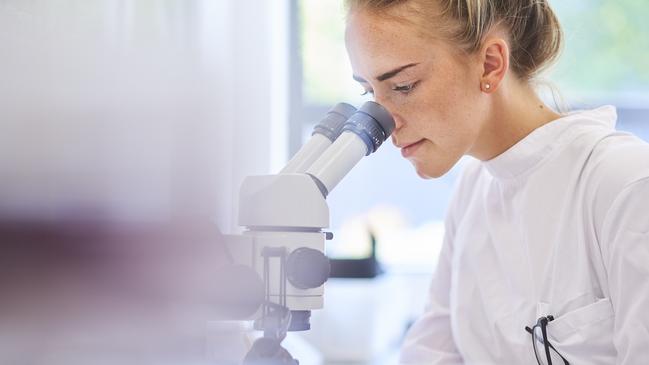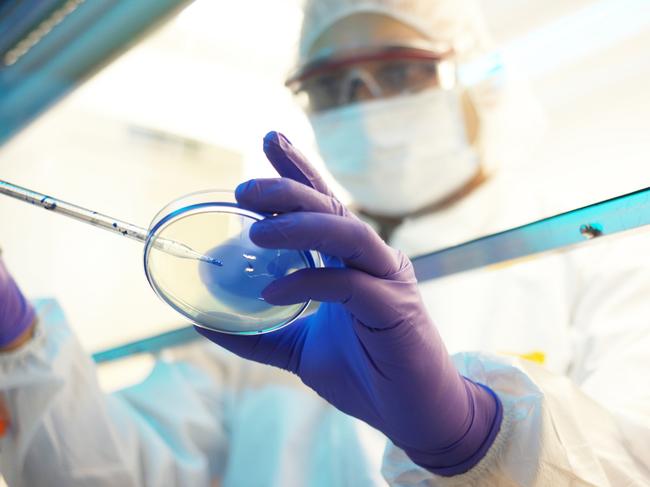Human embryos created without egg or sperm in controversial breakthrough
Scientists have discovered a way to make synthetic embryos, sparking debate among Aussie experts. See why.

World
Don't miss out on the headlines from World. Followed categories will be added to My News.
Reports from the International Society for Stem Cell Research that researchers have created synthetic human embryos using stem cells, rather than eggs or sperm, have raised concerns about scientists playing god with human life.
The research, which is yet to be published, is already dividing opinion, with some calling it a “breakthrough” and others saying it raises many ethical questions.
Professor Magdalena Żernicka-Goetz, of the University of Cambridge and the California Institute of Technology, has revealed that human-like embryos have been recreated by “reprogramming” human embryonic stem cells.
The embryos were grown to a stage roughly beyond 14 days — the legal limit for lab cultivated embryos is 14 days – and did not have a beating heart, gut or brain. It is not yet clear whether they had the capacity to progress to the next stages of development.

Professor Wojciech Chrzanowski from the Sydney Pharmacy School at the University of Sydney, described the creation as a “breakthrough” and a “vital role in fundamental biology and understanding how living organisms develop”.
“This is a key piece in the puzzle to studying all developmental processes including disease or biological impairments,” he said.
Professor Rachel Ankeny, a stem cell research expert with the University of Adelaide said it was “extremely important” research, but work needed to be done on regulations and safeguards.
“It is extremely important to develop a much deeper understanding of the earliest stages of human development, particularly as these are essential for developing better clinical responses to infertility, miscarriage, and developmental errors,” she said.
“However, it is very likely that this research will lead to further debates about the so-called 14-day rule, which is the current legal limit for using embryos or embryo-like structures for research purposes.
“It is critical that researchers be transparent about this type of research and what is known and unknown, in order to ensure that our regulatory processes address the necessary issues and that the public is assured that there are adequate oversight mechanisms and safeguards.”

Monash University Faculty of Law Associate Professor Karinne Ludlow agreed, saying the research raised legal questions.
“Novel beings such as synthetic embryos raise fundamental challenges for regulatory frameworks. Some of these lifeforms are prohibited under Australian legislation, but the scope and justifications for the application of such prohibitions is unclear. They also raise difficult questions about how we ought to treat novel beings,” she said.
Dr Kathryn MacKay, of the Sydney Health Ethics department of the University of Sydney, questioned the ethics of the embryos’ purpose.
“There is a moral issue involved in creating something for research that may or may not have the potential to live as its own full entity. If they could live as their own full entities, then we must ask whether it is morally permissible to create living beings purely for research purposes,” she said.
“Right now, animal models suggest that these synthetic embryos would not be able to grow into a human baby. This raises two further questions: One, if they are not the sort of thing that can really grow into a human baby, then how useful are they really for scientific knowledge into human reproduction and development? And two, will researchers decide that ‘fixing the problem’ of these embryos not being able to grow into human babies is something worth pursuing, for questionable ends?”





